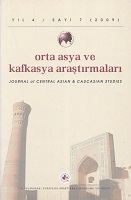THE RUSSIAN-GEORGIAN WAR: IMPLICATIONS FOR THE UN AND COLLECTIVE SECURITY
THE RUSSIAN-GEORGIAN WAR: IMPLICATIONS FOR THE UN AND COLLECTIVE SECURITY
Author(s): Roman MuzalevskySubject(s): Politics / Political Sciences
Published by: USAK (Uluslararası Stratejik Araştırmalar Kurumu)
Keywords: UN; Russia; Georgia; Security; International Law
Summary/Abstract: This paper examines UN’s involvement in Georgia following the dissolution of the Soviet Union and analyzes implications of the 2008 Russian-Georgian War for the international state system, the UN itself and collective security. It presents definitions of humanitarian intervention, self-defense, sovereignty and territorial integrity promoted by the UN as correct notions in theory but frequently conflicting concepts in practice. The war between Russia and Georgia, along with the cases of South Ossetia and Abkhazia, serves as a case study demonstrating the difficulties of regional dispute resolution when international principles conflict and geopolitics comes into play. The paper shows that the UN’s role in providing for international security after the Russian-Georgian war has been undermined and that there is a clear need for reforms within the UN, realignment of its vision, purposes, and especially principles. Better reconciling, legally and practically, the frequently exclusive conceptions of territorial integrity and self-determination, state sovereignty and humanitarian intervention is essential to help prevent or mitigate breaches of international law and collective security the UN positions but not quite serves as a sole guarantor of.
Journal: Orta Asya ve Kafkasya Araştırmaları
- Issue Year: 2009
- Issue No: 07
- Page Range: 29-43
- Page Count: 14
- Language: English
- Content File-PDF

